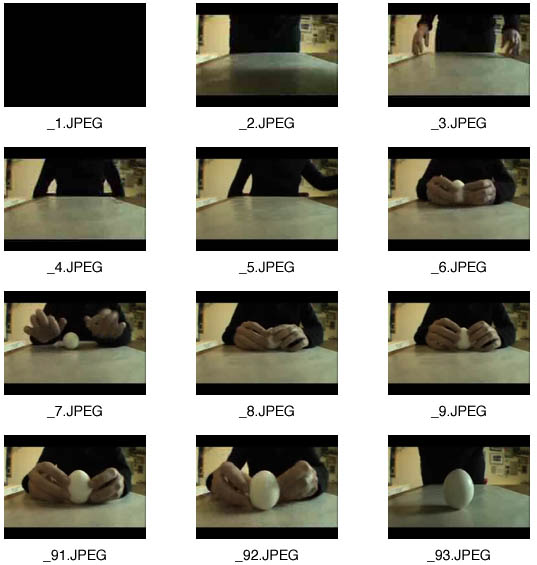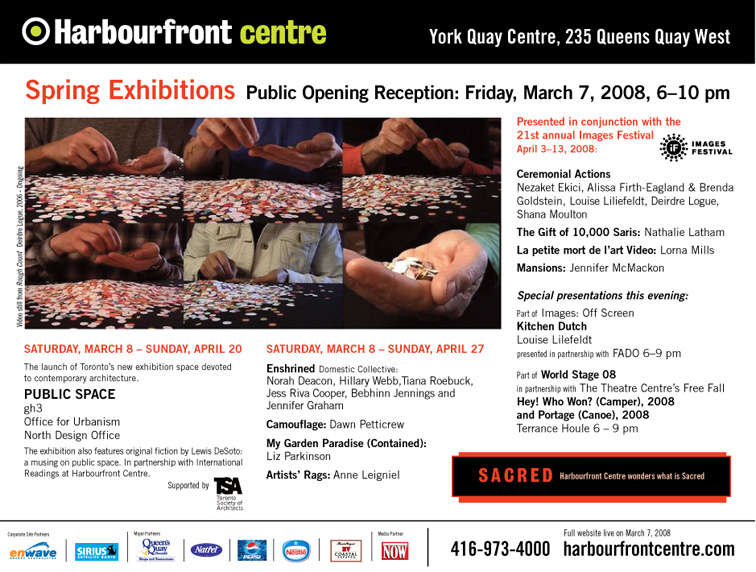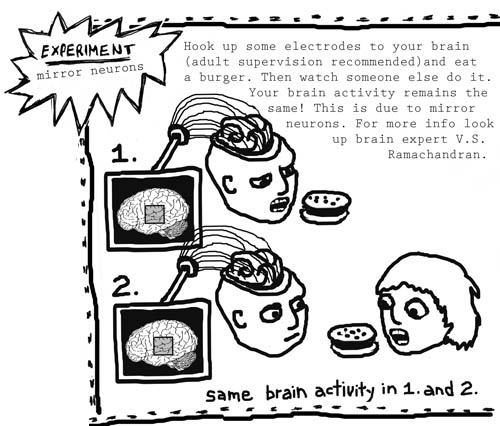
|
Lorna Mills and Sally McKay
Digital Media Tree this blog's archive OVVLvverk Lorna Mills: Artworks / Persona Volare / contact Sally McKay: GIFS / cv and contact |
View current page
...more recent posts
I have been looking for this image for a long time, it was scrubbed off the Canadian Government's on-line image archives, but magically reappeared on an Alberta separatist's web site.
(Anthony Easton, why do they want to separate? Should they stay or should they go?)

Next on the agenda are the imaginative and rythmically edifying jottings from an eminent lady of letters, Hannah Evans:
In Cuba a man named Fidel
Told America 'You go to hell'
His health is now ailing
His government failing
But his hat and cigar still look swell.

I might add that this gentle-lady with a pen is mighty pissed off that the political email list she subscribes to has a 'no limericks' rule. And so we stand in solidarity with her as I was pissed off by that very same list's 'no long emails about the dream I had last night' rule.
(they also make fun of Sally whenever she brings up the subject of mimesis. That's just so wrong of them.)
SACRED curated by Patrick Macaulay, at Harbourfront Centre opens this Friday, March 7, from 6 to 10 pm.
Both Jennifer McMackon and Lorna Mills (myself) are participating in this show as part of the 21st annual Images Festival.


They tried to make me go to grad school, but I said:




This is an excerpt from my piece in Kiss Machine's Activity Book Issue.
Here is a better explanation of mirror neurons:
Mirror neurons are a particular class of visuomotor neurons, originally discovered in area F5 of the monkey premotor cortex, that discharge both when the monkey does a particular action and when it observes another individual (monkey or human) doing a similar action.
Rizzolatti G, Craighero L, “The mirror-neuron system,” in Annual Review of Neuroscience, issue 27 (2004) p. 1
Giacomo Rizzolatti, a neurophysiologist, and Laila Craighero, a neuroscientist, say this:
A category of stimuli of great importance for primates, humans in particular, is that formed by actions done by other individuals. If we want to survive, we must understand the actions of others. Furthermore, without action understanding, social organization is impossible. In the case of humans, there is another faculty that depends on the observation of others’ actions: imitation learning. Unlike most species, we are able to learn by imitation, and this faculty is at the basis of human culture. In this review we present data on a neurophysiological mechanism—the mirror-neuron mechanism—that appears to play a fundamental role in both action understanding and imitation. We describe first the functional properties of mirror neurons in monkeys. We review next the characteristics of the mirror-neuron system in humans. We stress, in particular, those properties specific to the human mirror-neuron system that might explain the human capacity to learn by imitation. We conclude by discussing the relationship between the mirror-neuron system and language.
Rizzolatti G, Craighero L, “The mirror-neuron system,” in Annual Review of Neuroscience, issue 27 (2004) p. 1
Michael Taussig, an anthropologist, says this:
The wonder of mimesis lies in the copy drawing on the character and power of the original, to the point whereby the representation may even assume that character and that power. I an older language, this is "sympathetic magic," and I believe it is as necessary to the very process of knowing as it is to the construction and subsequent naturalization of identities. But if it is a faculty, it is also a history, and just as histories enter into the functioning of the mimetic faculty, so the mimetic faculty enters into those histories. No understanding of mimesis is worthwhile if it lacks the mobility to traverse this two-way street, especially pertinent to which is Euro-AMerican colonialism, the felt relation of the civilizing process to savagery, to aping.Jimmie Durham, a Cherokee artist and activist, says this:
Michael Taussig, Mimesis and Alterity: A Particular History of the Senses (New York; London: Routledge, 1993) p.xiv
Europe, or the Western World, or Civilization, has been going around watching everyone for some time now. The good part of this is a kind of self-observation, so that we have complicated novels to read, and art that attempts self-exploration and intervention in the given narrative and, at the same time, a little distance. The bad part is that the Western World has not observed itself observing. It has not seen how active, how transforming, its watching has been for itself. The West (I can't keep writing the "Western World," though "the West" is even more ambiguous) has not imagined itself as defined by its colonial enterprises and engagements. Instead, it has continuously imagined barriers and borders between itself and constantly reenforced Others.
But listen to this: "The border has dissolved and expanded to cover the lands it once separated such that all the land is borderland, wherein the imagesphere of alterities, no less than the physiognomic aspects of visual worlds, disrupt the speaking body of the northern scribe into words hanging in grotesque automutilation over a post-modern landscape where Self and Other paw at the ghostly imaginings of each other's powers." It's Michael Taussig, in his book Mimesis and Alterity. When I first saw the title I thought it was awkward and academic, but that's because I didn't know the word "alterity." (I'm afraid I suffer from the American disease that causes anger at things, especially fancy words, one doesn't know.) After reading the book, though, I wrote to Taussig to tell him he had written things I'd always intended to think but had been unable to.
Jimmie Durham, "Mimesis and Alterity" (book review) in Artforum, (December 1993) full text online